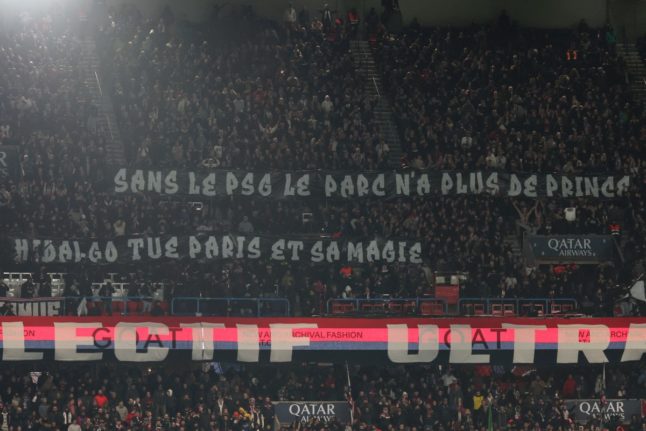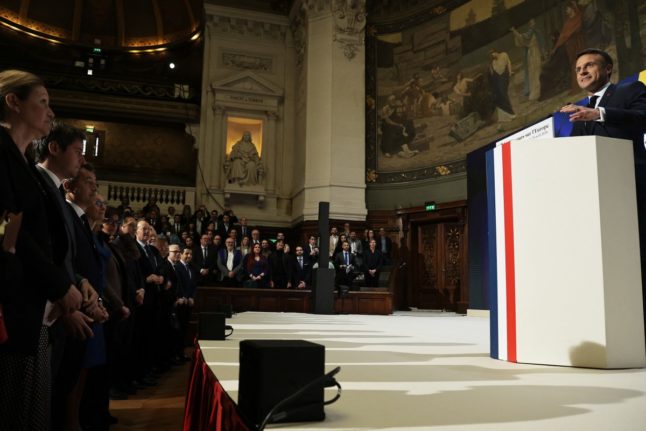Paris Saint-Germain chairman Nasser Al-Khelaifi and Paris Mayor Anne Hidalgo were once seen regularly smiling together in the VIP seats of the Parc des Princes stadium, but are no longer on speaking terms after a series of clashes.
At the heart of the quarrel is Khelaifi’s desire to buy the 48,000-seater stadium from the city, which Hidalgo’s leftwing adminstration has blocked over the past year, most recently in a vote by the city council on February 6th.
“We’ve wasted years wanting to buy the Parc,” Khelaifi said angrily last week on the sidelines of a meeting of European football’s governing body UEFA.
“It’s over now. We want to move from the Parc.”
In other acidic comments, he suggested last month that racism was playing a part – “is it because we are Arabs?” he asked the Parisien newspaper – and he has called for “respect” from the mayor’s office.
The stakes are high for PSG which wants to follow the model of other major European football clubs by developing hospitality facilities at the stadium and increasing its capacity to 60,000 seats.
The row underlines the prominent role of public authorities in French sports where even elite clubs rarely possess their own grounds, unlike in Britain or Germany where private ownership is the norm.
PSG signed a 30-year lease for the Parc in 2013 – two years after the Qatari state-backed takeover of the club – meaning they are committed in theory to 2043 unless there are clauses allowing them to break the contract.
For the city, seeing PSG leave would be a disaster, with the capital lacking another sports club capable of selling out the Parc’s vast steeply banked stands in the upmarket 16th district of western Paris.
“We don’t want to carry on talking to PSG through the media,” Paris’ deputy mayor Emmanuel Grégoire told reporters on Sunday. “We’ve got things to say to them and we imagine they’ve got things to say to us.
“What we want is to get back to work without further comment. PSG will never leave the Parc des Princes.”
Sources within the mayor’s office said in the past that Hidalgo was initially open to discussing a sale of the Parc at the right price, before negotiations broke down.
An initial offer of €40 million from PSG was seen as derisory, with Grégoire joking that the club valued their premises – a protected 1972 building – less than their former Argentine midfielder Leandro Paredes who cost €47 million.
Most observers see the clash as a game of brinkmanship, with PSG having no easy options to move from their home since 1974 and the city having lots to lose if its prestigious tenant walks away.
PSG let it be known they were interested in buying the much larger Stade de France, the national sports stadium north of Paris, but decided against submitting a bid before the deadline at the beginning of January.
At 48,000 seats, the Parc’s capacity is significantly below equivalents in Britain, Italy, Spain or Germany, where most of the top sides have 60,000 or above.
The French club have found an ally in Valérie Pécresse, the right-wing head of the greater Paris region, who is a fierce political and personal rival of Hidalgo.
Pécresse has publicly offered to help find land for PSG in the region, which Grégoire has termed a “stab in the back”, according to the BFM channel.
Pierre Rabadan, in charge of sports at Paris city hall, said last week that his door remained open, saying that there were “other options that exist” for PSG other than the acquisition of the stadium.
One possible solution would be an extension to the lease, but the city would also have to consent to extension work on a building with major architectural value.
Building a new stadium “is 10 years’ work in the best-case scenario,” Rabadan told reporters.
Some fans let their feelings be known on Saturday during PSG’s 3-1 win over Lille, with hostile chants and banners targeting Hidalgo.
The mayor’s office announced on Tuesday it had asked for a judicial investigation into homophobic chants during the Lille game.
“In addition, Anne Hidalgo will file a complaint in her name for public insults,” a statement from the city said.



 Please whitelist us to continue reading.
Please whitelist us to continue reading.
Member comments